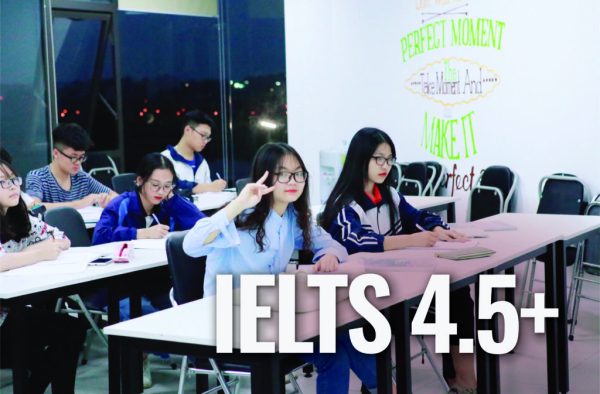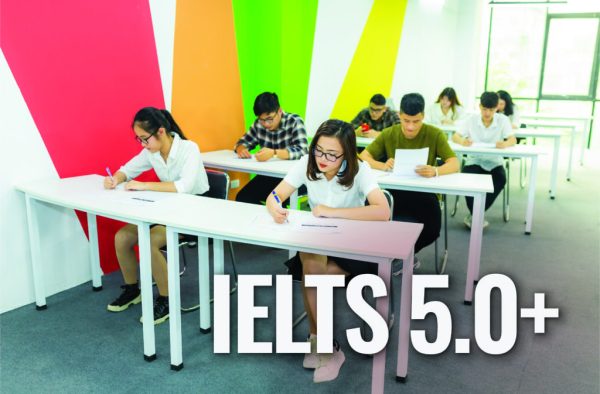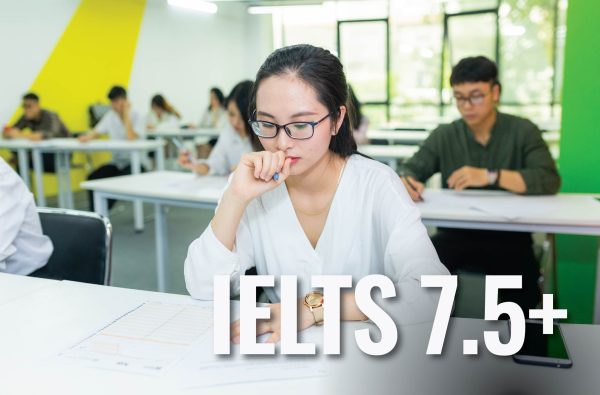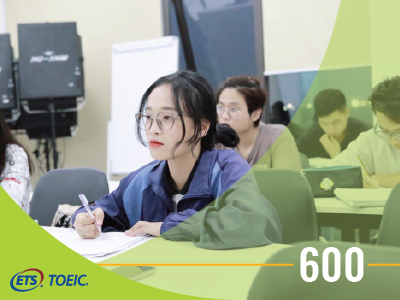Nhận tư vấn về lộ trình học
IELTS Writing Task 2 – OPINION #43
17 Tháng 7, 2023 | 475 lượt xem
Có 5 dạng câu hỏi chính trong IELTS Writing Task 2, bao gồm: Opinion, Discussion, Advantages – Disadvantages, Solution và Direct questions. Trong đó, dạng đề phổ biến nhất trong liên tiếp nhiều năm qua là Opinion (Writing Task 2 Agree or Disagree) và Discussion (Discuss both views). Vì thế thí sinh có mục tiêu IELTS 7.5+ cần đặc biệt lưu ý 2 dạng câu hỏi này. Hãy cùng Universal giải chi tiết đề thi gần đây để nắm vững cách triển khai một bài luận Opinion nhé!
Trong chuyên mục IELTS Writing Task 2, Universal sẽ cung cấp cho các bạn các chủ đề thường xuất hiện nhất trong kỳ thi IELTS tại IDP với bài mẫu đầy đủ bố cục và danh sách từ vựng Band 8+.
Danh mục
Luyện IELTS Writing Task 2 thế nào?
- Bước 1. Đọc bài mẫu để biết cách phân chia đoạn, ý chính
- Bước 2. Lưu lại các cụm từ thể hiện: quan điểm, trình bày tranh luận, từ vựng chỉ mặt lợi, mặt hạn chế của một vấn đề, và các nguyên nhân – giải pháp xoay quanh một hiện tượng
- Bước 3. Sử dụng những gì đã take notes để viết bài của riêng mình.
Đề thi IELTS Writing #43
Some people believe that it is good to share as much information as possible in scientific research, business and the academic world. Others believe that some information is too important or too valuable to be shared freely. Discuss both these views and give your own opinion.
Sample #43
The question of how much information relevant (có liên quan) to various areas of scientific and academic research should be shared is becoming more and more important as the pace of technological innovation quickens (tốc độ phát triển kỹ thuật gia tăng). In my opinion, information is a valuable, potentially dangerous asset and should only be sared freely in particular circumstances (các tình huống đặc biệt).
Advocates (những người ủng hộ) of freely sharing information argue that collaboration leads to faster results. This applies to scientists, who can help each by offering their individual research results, businesses, which can work together as long as they are not competitors on advertising or product development, as well as academics, who need fresh perspectives (cái nhìn mới mẻ) to push their work to higher plateaus (đưa các sản phẩm học thuật đến đỉnh cao hơn). Take for example the potential for sharing information in the business world. Google has built their successful advertising business by working together with various companies and sharing information. Google collects a variety of statistics related to users including their location and interests. This information is shared with advertisers who can then better target adverts for users. It allows the consumer to see more relevant products (các sản phẩm có liên quan) and services and the companies advertising to target their audience more efficiently.
While there are advantages, information is still a valuable asset that individuals and companies should safeguard (bảo vệ, trông chừng). In a perfect world, we might expect people to openly share everything they know but the social and economic constructions of our actual world make this a naive proposition (ý kiến ngây thơ). One interesting example of this is from a recent news article about Elon Musk where he explained why his rocket company SpaceX does not apply for patents (bằng sáng chế) on any new technology. He reasoned (giải thích lý do) that his main competitors are governments, not private companies. If his company discloses (tiết lộ) its innovations then domestic and foreign governments can take advantage of (lợi dụng) the shared technology and potentially disrupt (phá vỡ) his business.
In conclusion, though sharing might be a valid standpoint (ý kiến thuyết phục) in a perfect world, it is not feasible (thực tế) under current global conditions. Instead of looking to increase sharing, governments should do more to support innovative companies and researchers. This will have a larger overall impact.
Useful expressions
- relevant: có liên quan
- pace of technological innovation quickens: tốc độ phát triển kỹ thuật gia tăng
- particular circumstances: các tình huống đặc biệt
- advocate: những người ủng hộ
- fresh perspectives: cái nhìn mới mẻ (từ khía cạnh khác)
- push their work to higher plateaus: đưa các sản phẩm học thuật đến đỉnh cao hơn
- more relevant products: các sản phẩm có liên quan
- safeguard: bảo vệ, trông chừng
- naive proposition: ý kiến ngây thơ
- patent: bằng sáng chế
- reason: giải thích lý do
- disclose: tiết lộ
- take advantage of: lợi dụng
- disrupt: phá vỡ
- valid standpoint: ý kiến thuyết phục
- feasible: thực tế
Bí quyết chinh phục IELTS Writing Task 2

Bạn nhất định phải xây dựng một nền tảng thật vững chắc trước khi tiến hành luyện đề. Hãy học chuyên sâu về từ vựng và ngữ pháp ở giai đoạn đầu tiên học tiếng Anh. Tham khảo tối thiểu 20 bài mẫu trước khi bắt tay vào viết bài của riêng mình để giải đề thi IELTS Writing task 2. Viết bài xong, hãy sử dụng những công cụ suggest corrections để xem liệu mình có sai sót ở đâu không. Bạn cũng có thể gửi bài cho những người đã từng thi IELTS, hay giáo viên có kinh nghiệm để sửa giúp.
Bí quyết luôn bám sát mục tiêu là thường xuyên test bài theo định dạng kỳ thi IELTS IDP để biết năng lực của mình. Nhận diện điểm yếu để cố gắng khắc phục là cách nhanh nhất để thành công đó. Bạn hãy tham khảo bài thi tại đây: http://m.me/universal.edu.vn/
Hoặc tham dự thi thử IELTS IDP miễn phí tại các cơ sở của Universal Language Center:
- Cơ Sở 01: 262 Lạc Trung, Hai Bà Trưng, Hà Nội
- Cơ Sở 02: 114 Hoàng Như Tiếp, Long Biên, Hà Nội
- Cơ Sở 03: 12/36 Phan Kế Bính, Ba Đình, Hà Nội
- Cơ Sở 04: 619 Nguyễn Văn Cừ, Long Biên, Hà Nội
- Cơ Sở 05: 23 Tô Vĩnh Diện, Thanh Xuân, Hà Nội
- Cơ Sở 06: 222 Lý Nam Đế, Tân Quang, Tuyên Quang
- VPTNĐK: 1/58 Việt Hưng, Long Biên, Hà Nội
Tham khảo khóa học IELTS Cam kết đầu ra 7.5+ tại Universal: https://universal.edu.vn/khoa-hoc/khoa-hoc-ielts-mastery/
(Nguồn: Sưu tầm)
ĐĂNG KÝ NHẬN TIN






